Sorted by date Results 1 - 25 of 349

February 20, 1938 -LONDON, Great Britain - Britain's political landscape was shaken by the dramatic resignation of Foreign Secretary Anthony Eden, who stepped down in open protest of Prime Minister Neville Chamberlain's increasingly conciliatory policy toward Adolf Hitler and Benito Mussolini. Eden's departure marked one of the most consequential cabinet resignations of the pre‑war era, exposing deep fractures within the British government over how to confront the rising threat of fascist a...
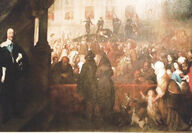
Four hundred years ago, Charles I was crowned King of England. He became king automatically upon the death of his father, James I, but his coronation was delayed for almost a year. Officially, the delay was attributed to an outbreak of plague which made public gatherings deadly when, in truth, the excuse masked another reality. Charles was broke. His father had spent lavishly and left the crown deeply in debt. Along with the throne, Charles inherited the existing financial obligations and a stra...

After Abraham Lincoln’s death, his long-time friend Ward Hill Lamon noted how Lincoln’s deification “took place with showy magnificence.” Union Officer Donn Piatt stated, “I hear of him, I read of him in eulogies and biographies, but I fail to recognize the man I knew in life.” The American education system and a long line of “Court Historians” have kept the Lincoln Myth alive. Inconvenient truths about Lincoln are generally ignored and anyone who points them out is typically attacked and vi...

On February 9, 1861, Montgomery, Alabama briefly became the political center of a nation in rebellion. Delegates from six seceded Southern states gathered in the Alabama State Capitol and elected Jefferson Davis as provisional President and Alexander H. Stephens as provisional Vice President of the newly formed Confederate States of America. The decision marked one of the most consequential moments in American history, setting the leadership that would guide the South into a four‑year civil war....
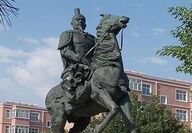
On February 11, 951, the military commander Guo Wei launched a decisive coup in the Chinese capital of Kaifeng, overthrowing the Later Han regime and establishing the Later Zhou Dynasty. The event reshaped the political landscape of the fracturing Five Dynasties period and set the stage for the eventual reunification of China under the Song. A China in Turmoil The mid‑10th century was one of the most chaotic eras in Chinese history. The once‑mighty Tang Dynasty had collapsed in 907, and nor...

On February 12, 1689 England's Convention Parliament declared that King James II's flight in the face of revolting lords was an abdication. This paved the way for Parliament to replace James with William of Orange and James' daughter Mary. It was not merely a change in rulers but a profound shift in the nature of English governance. England had been racked with religious wars since Henry the VIII's reign in the 16th Century. At the death of Queen Elizabeth I, the Scottish Stuarts replaced the...

In February 1258, the world witnessed one of the most consequential turning points in Middle Eastern and global history: the Mongol conquest and destruction of Baghdad. Led by Hulegu Khan, grandson of Genghis Khan, Mongol forces captured and sacked the city that had served for centuries as the intellectual, cultural, and political heart of the Islamic world. The fall of Baghdad effectively ended the Abbasid Caliphate and is widely regarded as the symbolic end of the Islamic Golden Age - a...
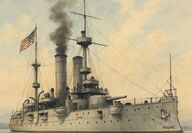
February 15, 1898 - The Night That Changed U.S. Foreign Policy On a warm February night in 1898, as Havana Harbor lay quiet under the Cuban sky, the American battleship USS Maine suddenly erupted in a massive explosion that shattered the stillness and sent shockwaves far beyond the island. More than 260 American sailors were killed instantly or died soon after-one of the deadliest peacetime naval disasters in U.S. history. Within weeks, the tragedy would ignite a political firestorm, fuel a...

Lynyrd Skynyrd expressed the mood of much of the country when it questioned the relevance of Watergate and the feigned outrage surrounding a third‑rate burglary that captured the nation's attention. More than half a century later- 54 years after the break‑in and 52 years after the release of Sweet Home Alabama - Watergate has become civic shorthand for presidential corruption. The burglary at the Democratic National Committee headquarters and the subsequent cover‑up are treated as the original s...

February 16, 1804 - A defining moment of the First Barbary War - On the night of February 16, 1804, a young American naval lieutenant named Stephen Decatur carried out one of the most audacious operations in early U.S. military history. In the dark waters of Tripoli Harbor, Decatur led a hand‑picked crew of volunteers into enemy territory to destroy the captured American frigate USS Philadelphia-a mission so bold that British Admiral Horatio Nelson reportedly called it "the most daring act of t...

On February 17, 1944, the United States launched one of the most devastating and strategically decisive naval‑air assaults of the Pacific War. Known as Operation Hailstone, the two‑day strike targeted the Japanese stronghold at Truk Lagoon-today called Chuuk-long regarded as the "Gibraltar of the Pacific." The attack coincided with the opening moves of the Battle of Eniwetok Atoll, a complementary operation aimed at securing the Marshall Islands and tightening the noose around Japan's Cen...

On February 18, 1865, as the Civil War neared its violent end, Union Major General William T. Sherman's army entered Columbia, South Carolina, and unleashed one of the most controversial episodes of his Carolinas Campaign. By the next morning, much of the city lay in ruins. Among the structures damaged in the inferno was the South Carolina State House-symbolically the birthplace of secessionist resolve and a prime target in the Union's effort to break the Confederacy's will. The burning of...

On February 19, AD 197, the Roman Empire witnessed one of the most brutal and consequential civil battles in its long history. At Lugdunum-modern‑day Lyon in France-Emperor Septimius Severus defeated his rival Clodius Albinus, ending a bitter struggle for imperial legitimacy and reshaping the political landscape of the empire for decades to come. Ancient sources describe the clash as the bloodiest battle ever fought between Roman armies, a grim testament to the stakes of the conflict and the f...

On January 31, 1578, the fields outside the small Brabant town of Gembloux became the stage for one of the most decisive Spanish victories of the Eighty Years' War. In a conflict defined by shifting alliances, religious tension, and the struggle for independence in the Low Countries, the Battle of Gembloux stands out not only for its military significance but also for the political shockwaves it sent through a region already in turmoil. The clash revealed the strengths and weaknesses of both...

On February 1, 1662, the Chinese military leader Zheng Chenggong - better known as Koxinga - forced the Dutch to surrender Fort Zeelandia, ending a nine‑month siege and bringing Taiwan under his control. The victory marked the end of 38 years of Dutch colonial rule and reshaped the political landscape of East Asia. A Clash Between Empire and Exile Koxinga was a Ming loyalist at a time when the Qing dynasty had already taken control of mainland China. Refusing to submit, he gathered a powerful n...

Four hundred years ago, Charles I was crowned King of England. He became king automatically upon the death of his father, James I, but his coronation was delayed for almost a year. Officially, the delay was attributed to an outbreak of plague which made public gatherings deadly when, in truth, the excuse masked another reality. Charles was broke. His father had spent lavishly and left the crown deeply in debt. Along with the throne, Charles inherited the existing financial obligations and a...

On February 2, 962, a momentous event unfolded in Rome that would define the political and religious landscape of medieval Europe for centuries. Pope John XII placed the imperial crown upon the head of Otto I, King of East Francia, formally reviving the Holy Roman Empire. This coronation marked the beginning of a new era-one in which the alliance between the papacy and the German monarchy would shape the balance of power across the continent. A Kingdom in Need of Stability Before Otto I's rise,...

The accession of Mehmed II to the Ottoman throne on February 3, 1451 stands as one of the most consequential turning points in medieval history. At just nineteen years old, Mehmed inherited not only the vast and diverse territories of the Ottoman state but also its most enduring strategic challenge: the presence of Constantinople, the ancient Byzantine capital, still standing-though weakened-at the heart of Ottoman lands. His rise to power marked the beginning of a transformative era, one that...

Love, history and harmony: Valentine’s Day then and now Valentine’s Day is widely associated with romantic expression, though its origins and modern significance reflect a blend of ancient ritual, literary tradition, and changing social customs. In this article, PrayerSong examines how the holiday evolved and why music continues to play a role in how people mark romantic milestones. From pagan ritual to poetic romance Valentine’s Day did not begin as a celebration of love, but its roots can be t...
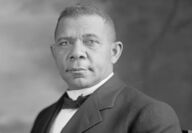
Alabama's Historically Black Colleges and Universities have shaped the state's political, cultural, and educational landscape for more than 150 years. Their history is inseparable from the broader story of Black advancement in the Deep South, where education became both a tool of liberation and a battleground for civil rights. From Reconstruction to the present, Alabama's HBCUs have produced generations of teachers, ministers, activists, scientists, and public leaders who transformed their...

On February 8, 1587, one of the most controversial and emotionally charged episodes in British history reached its grim conclusion. Mary, Queen of Scots, long a prisoner of her cousin Queen Elizabeth I, was executed at Fotheringhay Castle after being convicted of involvement in the Babington Plot-a conspiracy to assassinate Elizabeth and place Mary on the English throne. Her death reshaped the political landscape of Europe and cemented her legacy as both a martyr and a cautionary tale of royal...

On January 9, 1916, one of World War I's most grueling and consequential campaigns came to a close. After nearly eleven months of fighting, the final Allied troops withdrew from the Gallipoli Peninsula, marking a decisive victory for the Ottoman Empire and ending one of the war's most ambitious but ill‑fated operations. A Campaign Born of Strategic Ambition The Gallipoli campaign began in early 1915 as a bold Allied attempt to break the stalemate of the Western Front by opening a new theater o...

On the final night of the year 406, as the Roman world prepared to welcome a new year under the consulship of Arcadius and Probus, one of the most consequential border breaches in European history unfolded. Along the frozen or weakened stretches of the Rhine River - Rome's most secure frontier in the northwest - a coalition of Vandals, Alans, and Suebians crossed into Roman Gaul. Ancient chronicler Prosper of Aquitaine recorded the moment with stark clarity: "Vandals and Alans came into the Gaul...
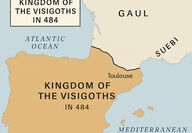
On December 28, 484, a young nobleman named Alaric II ascended the throne of the Visigoths, inheriting a kingdom that stretched across much of southern Gaul and the Iberian Peninsula. His rise marked a pivotal moment in the post‑Roman West - a world still reeling from the collapse of imperial authority, where new kingdoms were carving identities out of the ruins of empire. A Kingdom in Transition Alaric II succeeded his father, King Euric, one of the most powerful and assertive Visigothic rulers...

“The contest is really for empire on the side of the North, and for independence on that of the South, and in this respect we recognize an exact analogy between the North and the Government of George III, and the South and the Thirteen Revolted Provinces. These opinions may be wrong but they are the general opinions of the English nation.” London Times, November 7, 1861 The modern world reflects how Lincoln’s consolidation of power has produced the fruits of empire identified in the 1861 Londo...